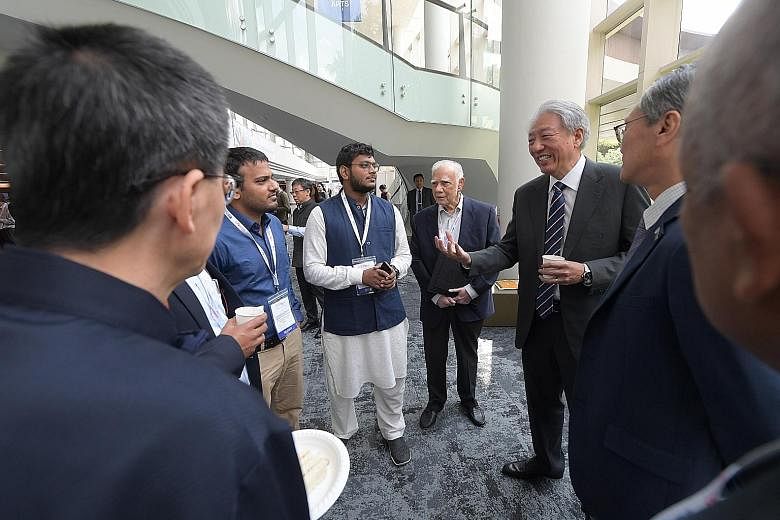The Regional Comprehensive Economic Partnership (RCEP) agreement is not just an "arithmetical game" about benefits that countries can get, but an opportunity to shape the norms and attitudes of a large region in the world, Senior Minister Teo Chee Hean said yesterday.
Countries like India must not live just in the moment, but look to where they want to be in 10 to 15 years, he added at the fourth South Asian Diaspora Convention held at the National University of Singapore's University Cultural Centre.
"It would be a lost opportunity not to grasp it, not from the bean-counting point of view, but from an overall strategic point of view," said Mr Teo, who is also Coordinating Minister for National Security, in response to a question from the Asian Infrastructure Investment Bank's director-general of investment operations, Mr Pang Yee Ean, who asked about the significance of India's withdrawal from the RCEP.
The RCEP, which now includes 15 member countries, including all Asean nations, and accounts for nearly 30 per cent of the share of the world's gross domestic product (GDP), is widely anticipated to further heighten this region's critical role in global value chains.
But India announced earlier this month that it would stay out of the mega-pact, amid concerns that it would hurt domestic producers.
In his address at the event organised by the Institute of South Asian Studies, Mr Teo expressed hope that the countries can overcome their outstanding issues so that India can come on board eventually.
"We look forward to the region, including India, moving ahead together as one," he said.
He also outlined three ways that the South Asian diaspora can help their region. First, by boosting economic cooperation within it, as well as with other regions.
There remains scope for South Asia to exploit such potential, given that international trade makes up a relatively low share of GDP in South Asian countries, with merchandise exports accounting for less than 10 per cent of GDP in South Asia.
The figure is over 20 per cent in East Asia and the Pacific, and 30 per cent in Europe and Central Asia, said Mr Teo. Intra-regional trade accounts for just 5 per cent of South Asia's total trade, compared with 24 per cent in Asean in 2015.
"Regional integration has been a powerful force for growth," Mr Teo added, citing how South-east Asian countries managed to set aside significant bilateral differences to focus on development.
Apart from boosting economic links, the diaspora can also work to strengthen South Asia's connectivity, such as via infrastructure development, as well as by developing talent, said Mr Teo.
An Asian Development Bank study showed that the region needs an average investment of about US$365 billion ($496 billion) each year to meet its infrastructure needs between 2016 and 2030.
"We know that infrastructure projects require a lot of investment, a high cost, and it is often not possible for South Asian governments to finance these projects on their own," Mr Teo said in his speech, adding that governments could tap capital from the private sector and multilateral institutions to plug the gap.
Another way to help the region is through developing its human resources. With South Asia's population projected to grow to 2.1 billion by 2030, Mr Teo said: "Many will be young people, and education is the key transformational process to take this abundant latent resource into a creative, productive, future-ready workforce."


